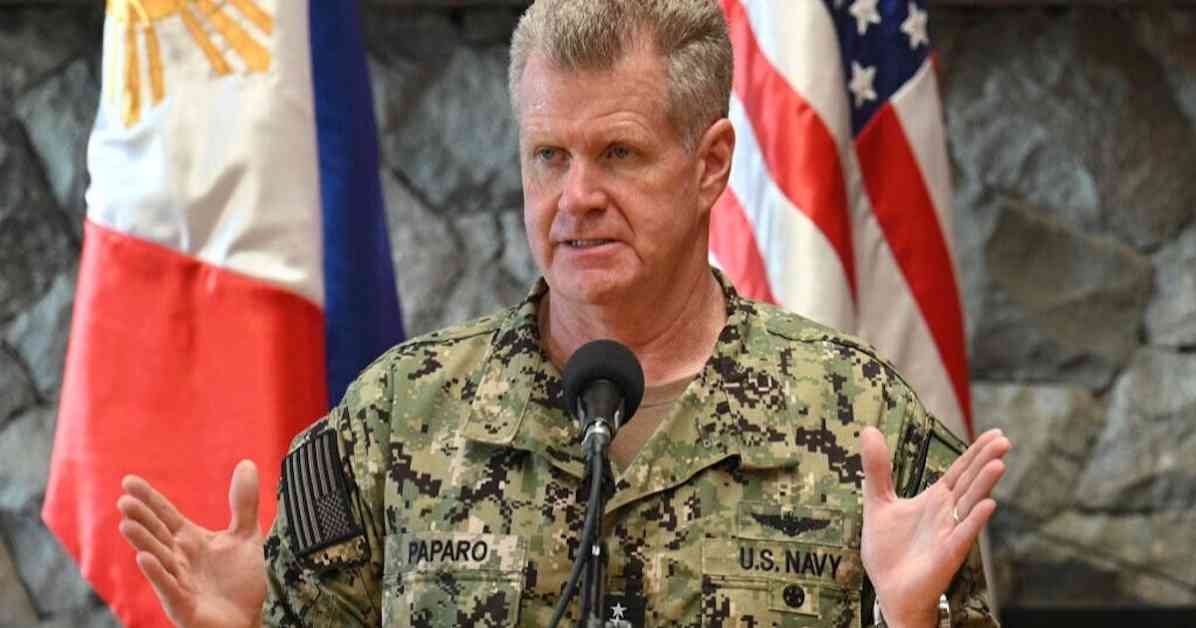I. The Significance of Reopened Communication between PLA Southern Theater Command and USINDOPACOM
In the realm of military and geopolitical relations, establishing a hotline between the Chinese People’s Liberation Army (PLA) Southern Theater Command and the US Indo-Pacific Command (USINDOPACOM) may seem like a positive step. However, in practice, such initiatives often fall short of achieving their intended outcomes. The centralized nature of decision-making within the Chinese military, where crucial decisions are made in Beijing, frequently leads to communication challenges arising from divergent objectives between the two parties.
The tensions between the United States and China escalated following the visit of former Speaker of the US House of Representatives, Nancy Pelosi, to Taiwan in August 2022, causing displeasure in China. As a form of protest, high-level military dialogues between the two nations were suspended. Nevertheless, the Chinese Ministry of National Defense recently confirmed that General Wu Yanan, Commander of the PLA Southern Theater Command, held a video call with Admiral Samuel Paparo, Commander of USINDOPACOM, on the 10th of the month. During this communication, they exchanged views on issues of mutual concern, reflecting the consensus reached at the Xi-Biden meeting in San Francisco. The resumption of military dialogue was agreed upon by President Joe Biden and Chinese President Xi Jinping in November of the previous year to stabilize US-China relations and prevent great power competition from escalating into conflict.
II. Addressing Unsafe Interactions and Promoting Stability
According to the USINDOPACOM, Admiral Paparo raised concerns during the call about recent “unsafe interactions” between the PLA and US allies, emphasizing the obligation of the Chinese military to adhere to international laws and norms. He urged the PLA to exercise caution in using tactics that could be perceived as dangerous, coercive, or likely to escalate tensions in the South China Sea and other regions. Describing the dialogue as “constructive,” Admiral Paparo expressed hope that it would pave the way for future discussions. He also expressed interest in continuing dialogues on issues of mutual concern with other PLA Theater Commanders. USINDOPACOM’s primary areas of responsibility include the South China Sea and the Taiwan Strait, regions where the geopolitical competition between China and the US is particularly intense, overlapping with the jurisdiction of the PLA Southern and Eastern Theater Commands.
As tensions in the South China Sea have escalated with repeated conflicts between Chinese and Philippine vessels since the beginning of last year, the importance of communication channels between the US and China cannot be overstated. The collision between a Chinese Coast Guard ship and a Philippine supply vessel in June resulting in the injury of a Filipino Marine Corps soldier underscores the volatile nature of the situation. While the incidents are typically led by Chinese Coast Guard vessels, PLA ships are often present nearby. Amid the heightened tensions in the South China Sea, the US and China have engaged in multiple contacts this year, including a meeting between US Secretary of Defense Lloyd Austin and Chinese Defense Minister Wei Fenghe at the Shangri-La Dialogue in Singapore in May. In August, US National Security Advisor Jake Sullivan held a rare meeting with Vice Chairman of the Central Military Commission of China, General Zhang Youxia in Beijing. The call between Admiral Paparo and General Wu Yanan holds particular significance as the heads of the two Commands had never previously engaged in direct conversation. General Wu Yanan assumed command of the PLA Southern Theater Command only in July, while Admiral Paparo took over command of USINDOPACOM in May.
III. Challenges and Opportunities in Military Hotline Communication
While the establishment of a military hotline between the US and China may seem like a step towards conflict avoidance, there are deeper structural challenges that need to be addressed to make such initiatives effective. James Crabtree, a geopolitical analyst, highlights the limitations of military hotlines in practice. Despite agreements between China and the Philippines to set up a hotline in 2023 to address tensions in the South China Sea, the hotline has not been utilized as of May 2024. Crabtree also points out the contrasting approaches to decision-making within the US and Chinese military. The decentralized nature of the US military empowers commanders with decision-making authority, whereas in China, important decisions are made in Beijing. Consequently, communication challenges arise due to divergent objectives between the two parties. Crabtree argues that military hotlines are least likely to be effective during crises when they are most needed, as China tends to close such dialogue mechanisms during deteriorating relations. However, he acknowledges that while diplomacy and dialogue are not panaceas, they can help stabilize relations. Given the frequent situations of incomplete information faced by both the US and Chinese militaries, a functioning military communication channel should help prevent misunderstandings and miscalculations.
In conclusion, the reopening of communication between the PLA Southern Theater Command and USINDOPACOM marks a significant development in US-China military relations. While challenges exist in ensuring effective communication and conflict avoidance, the establishment of a military hotline presents an opportunity for constructive engagement and dialogue between the two nations. By addressing unsafe interactions, promoting stability in the South China Sea, and navigating the complexities of military decision-making, both sides can work towards fostering a more stable and secure regional environment.












